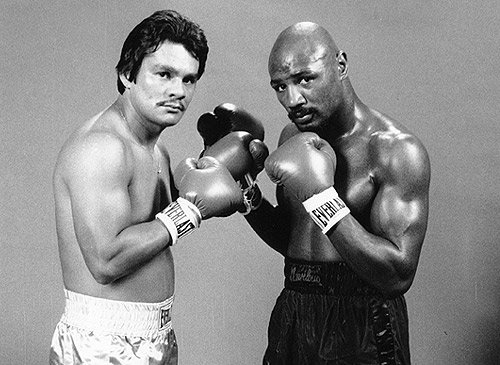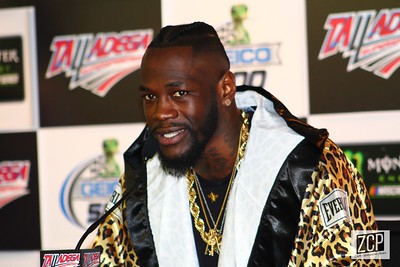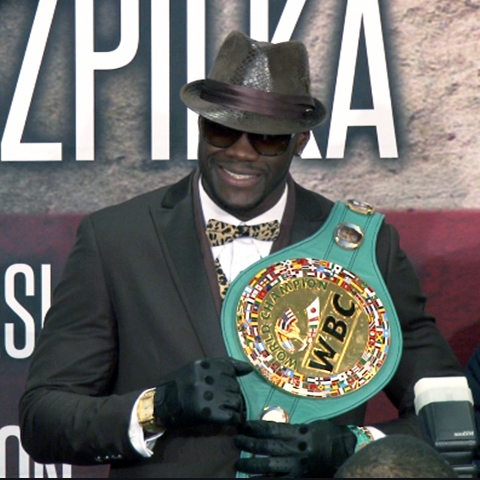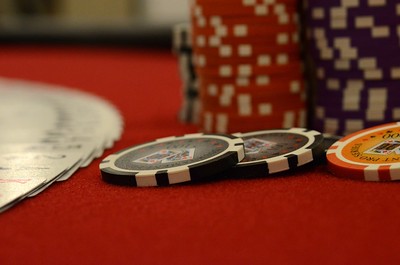Top 10 Boxers of the 1980s - Part 2
The top five who succeeded Muhammad Ali and his talented generation
The eighties of the twentieth century are one of the most demanding in the world of boxing, because a large part of the competitors must be worthy heirs of the great generation that offers us Muhammad Ali and a number of other names that have become household names not only for examples in this sport, but also examples of real athletes. However, a large number of professional athletes in the ring manage to cover these indicators. In this article, we will also present to you the final five of the top 10 best boxers of the 1980s.
We start with the fifth position, which is reserved for the great Mike Tyson. At the beginning of the decade in question, he was still a high school student, but soon became one of the students of the famous boxer Cus D'Amato, who saw in him the ideal heavyweight champion. By the end of the 80s, he had established himself as one of the best in the history of the division. Compact and extremely powerful, explosive and in perfect physical condition, "The Iron", as the boxer is nicknamed, is perfect for D'Amato's style. In 1986, he broke the previous D'Ato-trained Floyd Patterson's record by becoming the youngest heavyweight champion when he defeated WBC belt holder Trevor Burbick. Successes followed in 1987 over Tony Tubbs for the IBF title and over James Smith to become the World Boxing Association champion as well. In the remaining years until the end of the decade, Mike just kept wreaking havoc on the division. Some might argue that Mike simply had no competition, but aside from the aforementioned Tubbs and Berbick, "The Iron Man" defeated Frank Bruno, Pinklan Thomas, Larry Holmes and Michael Spinks to demonstrate that his strongest years were between 1986 and the 1989s. In the 90s, he won another title, but he is far from the same boxer anymore.
Aaron Pryor remains just before the top three. In the early 1980s, the "Hawk" appeared on the scene as a destroyer, rampaging against every opponent and entertaining the audience. Back in 1980, he won the light welterweight title, knocking out Antonio Cervantes in the fourth round. For the next five years, he terrorized his opponents and dominated. In 1982, he defeated Alexis Arguello in one of the greatest fights in history, lasting 14 rounds. Unfortunately, drugs prevented his dominance from lasting much longer and in the second half of the 80's, he suffered his only loss, coming to Bobby Joe Young. After giving up sports, he also gave up his addiction, becoming an inspiration for a number of drug addicts to stop using banned substances. Many experts and especially fans consider him the greatest in light welterweight.
In third place we put Thomas Hearns. In his best matches, he is as great as the sport's greatest. If he had been in better physical shape and had taken more hits, he might have been considered one of the greatest of all time. Hearns is from the first generation of great champions to come out of the legendary Emanuel Steward Hall in Detroit. He is an extremely technical boxer and has an incredible right jab. In 1981, he faced Ray Leonard in a fight between two welterweight champions. In one of the greatest fights in the history of the division, Hearns led until the 14th round before losing by TKO after an incredible run by Leonard. The Tennessee fighter won the World Boxing Council title after a success over Wilfred Benitez in 1982 and two years later made an incredible defense against Roberto Duran. In the most epic match of the last 30 years, however, Marvelous Marvin Hagler dethroned Hearns in '85. In the second half of the decade, he won the middleweight and super middleweight titles, his only embarrassing loss coming to Iron Barkley in the third round in 1988.
Sugar Ray Leonard remains in second place. As great a boxer as the 1976 Montreal Olympic gold medalist is, he has someone to give up the top spot to. Still, we're talking about a great career that began long before he turned pro. Shortly before the early 1980s, Sugar wrested the WBC welterweight title from the great Wilfred Benitez. And although he lost the belt to Roberto Duran in 1980, he regained it just five months later, dropping the champion in the eighth round. A year later, he takes the belt from Thomas Hearns in a match that has already been talked about, to grab the world title and the WBA. Within these two years, Ray's six opponents have 273 wins and only 7 losses, which means that there is no easy match for him. After stopping Bruce Finch in '82, Leonard sat out for almost two years before making a comeback with a nine-round decision over Kevin Howard in '84. However, this was his only match before 1987, when he took all the titles from Marvin Hagler by unanimous decision. A decision that remains highly controversial to this day. Still, Leonard's performance in this fight is more than unique. In the 1980s, he won the super middleweight and light heavyweight titles.
Number one, however, is and remains Marvelous Marvin Hagler. Despite the aforementioned and arguably undeserved loss to Ray Leonard, he is the boxer who left the most lasting mark of the 1980s. He is the most dominant of all not only in his division. In the 1970s everyone avoided matches with Marvelous, but it was in the 1980s that he finally won the middleweight title, defeating Alan Minter in his homeland, at Wembley, in just three rounds. In the next 6 years, Hagler made 12 successful titles and only Roberto Duran managed to make it difficult for him. Marvelous looks like it just has no competition. Still, Sugar Ray Leonard's 115-113 victory, while undeserved, is part of his history. Some of the greatest fights in boxing, but so insignificant for such a ranking that we must note that if Muhammad Ali has a successor, even if not in the same weight class, then his name must undoubtedly be Marvin Hagler.




